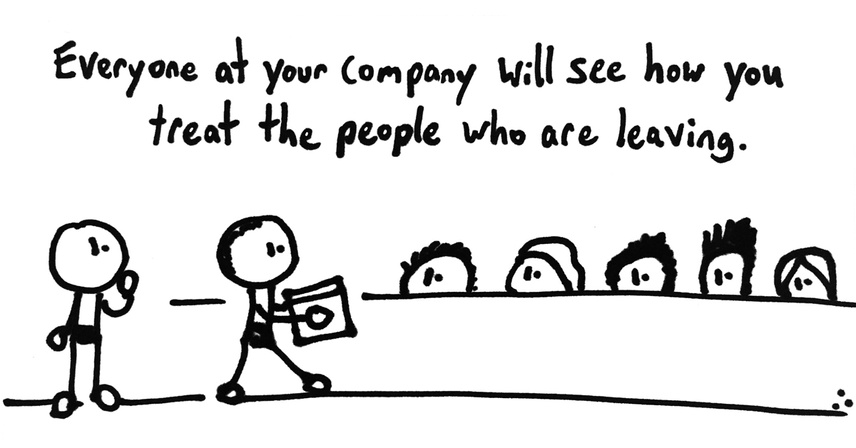How You Let Your People Go Defines Your Culture
- Thought Leadership
- By Seth Besmertnik
- 4 minutes read
I take the role of employer extremely seriously. When you hire someone, they depend on a job to enable them to buy food, shelter, healthcare and more. And often they are giving up another job for you - and that responsibility is now yours.
It’s a big obligation, and your employees are highly dependent on you so that they can pay their bills and provide for their livelihood; you are responsible for each and every one of your people (and often their families).
Hiring someone is never a sure thing, and it doesn’t always work out. Sometimes the employee is unhappy and decides to find a different job. In those situations, so long as they were treated well, I always recommend they leave in a mutually positive way and provide proper notice.
However, sometimes people are just not a good fit. Maybe they’re not motivated by your mission, they don’t match your culture, or maybe they are not who you thought they were. There are so many reasons things could go wrong. In these situations your values and the ‘for-real culture’ of your organization are put to the test.
How To Let An Employee Go With Dignity
I often see companies talk a big game about their culture; meanwhile, they don’t give employees candid feedback, they don’t train their managers to have tough conversations, and they surprise people with terminations — give them two weeks and walk them out the door.
What kind of culture is that? That person could be on the street. That person could have a sick kid who relies on your insurance. When you hire the wrong person, you’re responsible for that decision. We have to take ownership and treat people with the respect they deserve.
Even when it’s not your fault, it’s really your fault. And your actions should reflect that. Humanity must prevail.
Everyone at your company will see how you treat the people who are leaving. They will judge your culture based on that, and they should. We should all take the responsibility of being an employer with the utmost seriousness, and when situations don’t work out, we have to follow a set of values and embrace a process that leaves people in the best possible outcome.

In order to make sure you're cultivating a culture that treats people with respect and dignity, you'll need to ask yourself (and your team) a few hard questions, such as:
- Are you providing active feedback? Does this person know they are not performing?
- Have they been showed what you expect for them to be successful?
- Are you giving people time to properly transition their work? Are they able to say goodbye and shake hands with their colleagues?
- Do you give them time to find a new job? Do you help them find a new job?
- Do you tell their coworkers you fired them, or let them tell people they found a new job?
- Are you providing financial notice and severance? Does your severance give them enough time to find a new job?
- Does your severance reflect the amount of feedback you have given them? For instance, if you are surprising someone with a termination, they should get a lot more severance than if they were on a performance improvement plan for several months.
- Do your managers know how to have hard conversations? Are they direct with employees? (dig in here, most people are scared to be candid)

Don't Take The Easy Way Out
Sometimes small things can have a big impact during an exit transition and it’s important to remember and acknowledge your employee's humanness in this process.
At Conductor, our values on terminations are critical to our company. We always do everything to help make it work, and we also support people until their last day, even if sometimes it doesn’t work out.
In many cases, our other employees think someone found a new job, when in fact they were let go. It may appear like you are losing a battle by having others think this... but you are winning the war of building a great culture and a high-integrity business. This is more meaningful to long-term performance.
Don’t take the easy way out on this. Be proactive. How you treat the people leaving will live, good or bad, in the soul of your company for years to come.

Want to hear more from Seth? Connect with him on LinkedIn .







